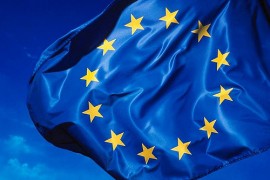DYKE: ‘BBC should be regulated by OFCOM’
BBC Trust ‘Failed a Primary Duty’
News-watch Survey – Winter 2013
This latest survey covers fourteen weeks between September 16 and December 21, 2013 and encompasses every word spoken about the EU over 84 editions, adding up 251 separate items and a total of 121,000 words. The analysis is based on widely accepted data analysis techniques used by academics in media schools at universities such as Leeds and Loughborough.
Liddle: Patten ‘ordered to give EU coverage evidence’
BBC Chairman ‘disgracefully’ stonewalls EU Scrutiny Committee
BBC ‘Pays double the rate for their taxis’
A decision by BBC Trustees to reject a complaint about the BBC’s EU coverage was a ‘farce’
A decision by BBC Trustees to reject a complaint about the BBC’s EU coverage was a ‘farce’, leading Eurosceptic MPs Kate Hoey and Philip Hollobone have said.
The complaint – based on research by Newswatch – centred on an edition of Newsnight last January which covered David Cameron’s decision to announce a radical overhaul of EU policy to include a referendum on withdrawal.
Mr Hollobone, who has written to BBC Trustees attacking heir ruling, said: “The programme featured 17 Europhiles pitched against one person who supported withdrawal. It was blatant imbalance.
“Yet the BBC says this did not matter because this was not a major news event and they were
therefore gauging reaction to the proposal from politicians and those affected by it. That’s the sort of sleight of hand excuse that shows that the BBC complaints process is completely rotten and stacked against complainants. They make the rules, they interpret them and they kick out most of them on the most spurious reasoning.”
A succession of top BBC executives, including former DG Mark Thompson, and more recently former head of television news Roger Mosey, have admitted that BBC EU coverage has been totally biased against the withdrawal case.
Mr Hollobone added: “Our complaint showed in detail that on the day of this major development in EU-related policy, this edition of Newsnight did not properly take into account the withdrawal case, and indeed went to absurd lengths to stuff the programme full of figures who wanted to shoot down both the idea of a referendum and the case for withdrawal.
“In terms of BBC coverage it was thus par for the course, but the Trustees have now performed a farcical series of contortions to argue the programme was fair”.
He added: “The BBC complaints procedure is clearly not fit for purpose because no-one involved is genuinely independent. It exists to protect the BBC’s back rather than the proper investigation of bias. It’s time for major change”.
Kate Hoey said: “I have grave concerns about how the BBC is going to be impartial during the coming debate on our relationship with the EU and a referendum. Chris Patten as a former EU commissioner really must prove he has left his Europhile position behind him and that he can ensure genuine impartiality”
Read the Newswatch-researched complaint here.
EU ‘Come-out’ Donor Sykes gets Today Roasting
Newswatch figures show fewer than one in 1,000 contributors to Today’s EU coverage were supporters of withdrawal from the Labour party or the British left.
BBC Director General Lord Hall told the House of Commons select media committee in a
hearing in October that the Corporation was determined to deliver impartiality by ensuring
that a range of voices on key issues was heard.
Newswatch’s latest figures – based on monitoring approximately half of the Today editions
since 2005 – show the programme has carried interviews and soundbite contributions
from only three left-wing advocates of withdrawal. The statistics show that there were
3,513 contributions to the various EU discussions on Today in nine years, but that
withdrawalists from the Labour Party and British left represented just 0.09% of guests, or
one in every 1,171 EU-related appearances.
The three speakers who contributed to the EU debate were Labour MP Austin Mitchell in
September 2009, Labour MP Gisela Stuart in October 2012, and Labour Party donor John
Mills in June 2013. Their combined contributions amounted to approximately 5 minutes
of airtime, but only 1 minute featured the speakers actually making any sort of case for
withdrawal.







